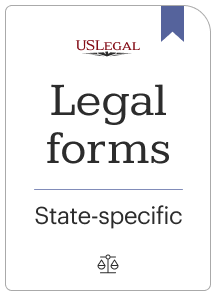

This form is a general affidavit. Affiant maintains that his/her statements are made upon affirmation of belief and personal knowledge that certain facts and matters set forth in the document are correct and true. Title: Understanding the Affidavit for Non-Prosecution: Types and Detailed Description Introduction: The affidavit for non-prosecution is a legal document that plays a crucial role in the criminal justice system. It grants the alleged victims the opportunity to express their desire not to press charges against the accused. This article aims to provide a detailed description of what an affidavit for non-prosecution entails, outlining its purpose, significance, and potential types. 1. Definition and Purpose of an Affidavit for Non-Prosecution: An affidavit for non-prosecution is a sworn statement provided by the alleged victim or complainant in a criminal case. It expresses the individual's intention to withdraw, drop, or not pursue charges against the defendant. It offers the alleged victims the chance to have their voice heard and influence the legal proceedings. 2. Significance of the Affidavit for Non-Prosecution: 2.1. Victim Empowerment: The affidavit allows victims to exercise their autonomy and make decisions regarding the criminal case's outcome. 2.2. Balancing Justice: It helps the legal system prioritize cases based on the victim's wishes, considering factors such as lack of evidence, fear of retribution, or willingness to forgive. 3. Types of Affidavits for Non-Prosecution: 3.1. Victim-Based Affidavit: Filed by the alleged victim directly, expressing their desire not to proceed with the prosecution due to various reasons such as lack of evidence, personal reasons, or resolution through alternative means. 3.2. Witness-Based Affidavit: Provided by witnesses who may no longer wish to cooperate or testify in the criminal case, leading to potential challenges for prosecutors. 3.3. Domestic Violence Affidavit: A specialized form of affidavit applicable in cases involving domestic violence, where victims may feel pressured to drop charges due to intimidation or fear. 4. Procedure for Submitting an Affidavit for Non-Prosecution: 4.1. Consultation with Prosecutors: Victims or witnesses should consult with prosecutors or legal advisors to understand the potential ramifications and implications of filing an affidavit for non-prosecution. 4.2. Preparation of the Affidavit: The document must be prepared carefully, including details such as the alleged incident's date, location, parties involved, and reasons for non-prosecution. 4.3. Swearing the Affidavit: The affine, either the alleged victim or the witness, must sign the affidavit in the presence of a notary public or other authorized officials. 4.4. Filing the Affidavit: The affidavit should be filed with the court handling the criminal case, ensuring that it reaches the prosecutor's office and becomes an official part of the court record. Conclusion: Affidavits for non-prosecution provide a vital mechanism for individuals involved in criminal cases to express their intention not to proceed with charges. This article highlighted the purpose, significance, and various types of affidavits for non-prosecution, underscoring the importance of victim empowerment and balancing justice within the legal system. Understanding this process can assist victims, witnesses, and legal professionals in navigating complex criminal cases while respecting the rights and wishes of those directly affected.
With a substantial US Legal Forms catalog at hand, you do not need to spend time searching for the appropriate template across the web. Take advantage of the library’s easy navigation to find the right form for any situation.
Decorative icon for this block